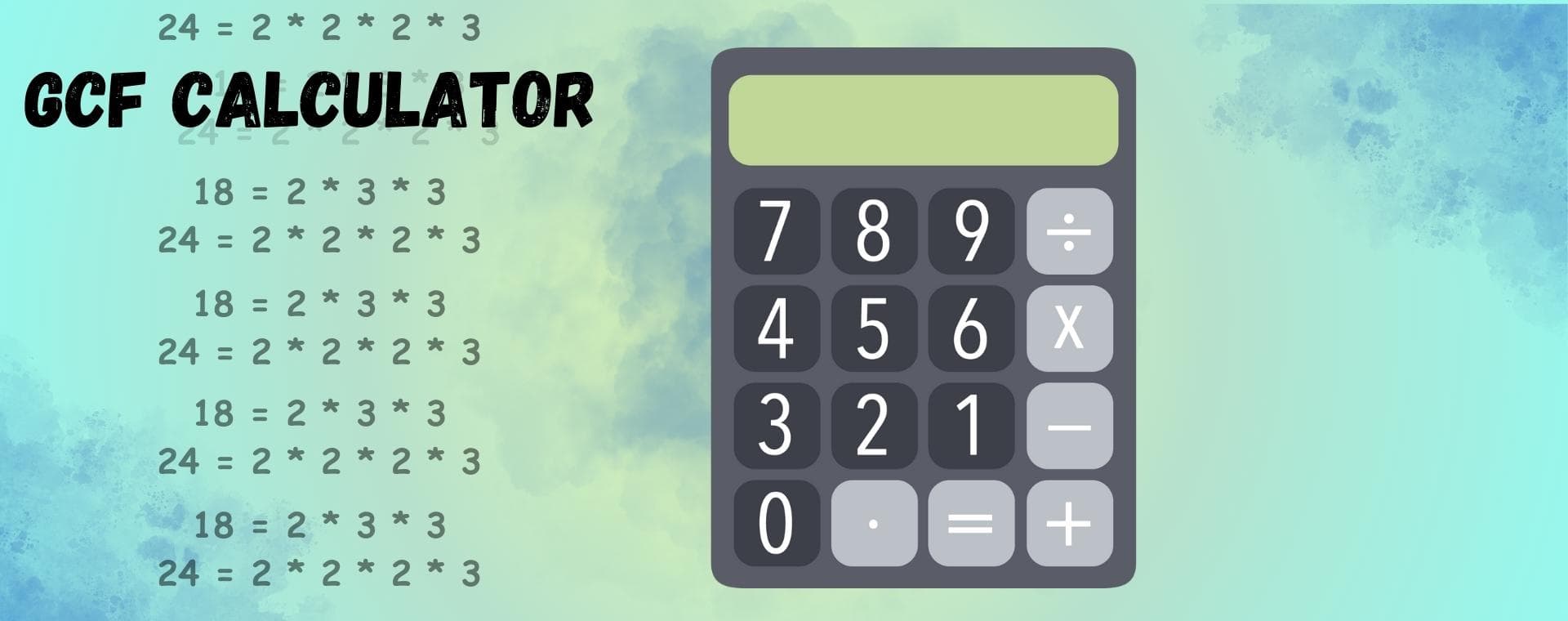
Admissions Open for

Admissions Open for
GCF (Greatest Common Factor) Calculator
The Greatest Common Factor (GCF) is a fundamental concept in mathematics that represents the largest number that divides evenly into two or more integers. It's a crucial tool in simplifying fractions, solving equations, and finding common denominators.
What is GCF (Greatest Common Factor) ?
The GCF is the largest number that divides evenly into two or more integers.
Why to use GCF (Greatest Common Factor) ?
Utilizing GCF simplifies mathematical operations such as reducing fractions, finding common denominators, and solving equations more efficiently.
When to use GCF (Greatest Common Factor) ?
GCF is used whenever simplifying mathematical expressions, particularly in fractions, or finding common factors between numbers is required.
Where to use GCF (Greatest Common Factor) ?
GCF finds its applications in various fields including arithmetic, algebra, and number theory, making it indispensable in mathematical problem-solving.
Calculator Formula:
The formula to calculate GCF involves identifying the common factors of the given numbers and selecting the largest one
Illustrated Examples:
Finding the GCF of 12 and 18:
Common factors of 12: 1, 2, 3, 4, 6, 12
Common factors of 18: 1, 2, 3, 6, 9, 18
Common factors of 18: 1, 2, 3, 6, 9, 18
Therefore, GCF(12, 18) = 6
Determining the GCF of 24 and 36:
Common factors of 24: 1, 2, 3, 4, 6, 8, 12, 24
Common factors of 36: 1, 2, 3, 4, 6, 9, 12, 18, 36
Hence, GCF(24, 36) = 12
Calculating the GCF of 35 and 45:
Common factors of 35: 1, 5, 7, 35
Common factors of 45: 1, 3, 5, 9, 15, 45
Thus, GCF(35, 45) = 5
Frequently Asked Questions
GCF is calculated based on the absolute values of the numbers, so the negativity doesn't affect the result.
No, GCF cannot exceed the smallest number as it must be a common factor of both numbers being considered.
Yes, GCF is primarily used for integers, but similar concepts like the greatest common divisor (GCD) extend to other mathematical domains.
Popular Searches
- NCERT Solutions for Class 1 subjects
- NCERT Solutions for Class 2 subjects
- NCERT Solutions for Class 3 subjects
- NCERT Solutions for Class 4 subjects
- NCERT Solutions for Class 5 subjects
- CBSE School In Aurangabad
- CBSE Schools In Bangalore
- CBSE School In Bhopal
- CBSE Schools In Chennai
- CBSE Schools In Delhi
- Best CBSE Schools In Gurgaon
- CBSE School In Hyderabad
- CBSE School In Indore
- CBSE School In Jabalpur
- CBSE Schools In Jaipur
- CBSE Schools In Kolkata
- CBSE Schools In Mumbai
- CBSE Schools In Nagpur
- CBSE Schools In Pune
- Top CBSE School In Rohtak
- Best CBSE Schools In Sonipat











